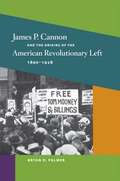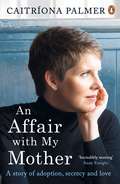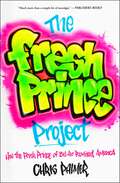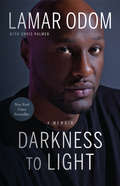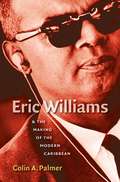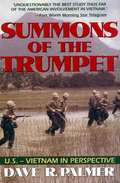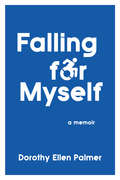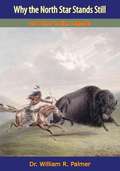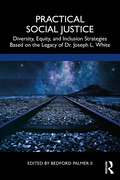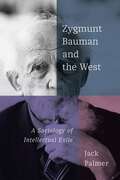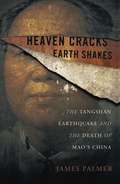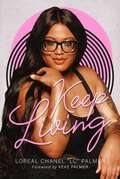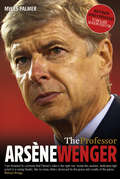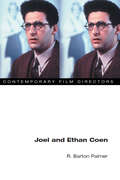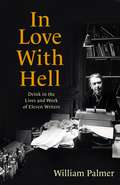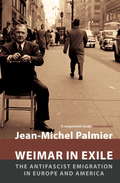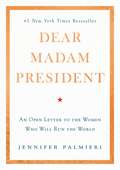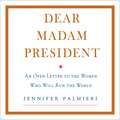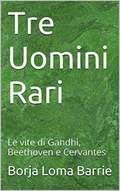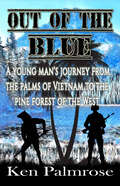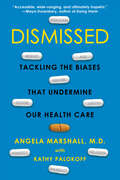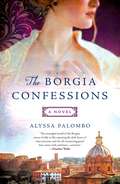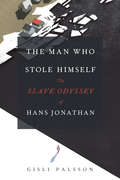- Table View
- List View
James P. Cannon and the Origins of the American Revolutionary Left, 1890-1928 (The Working Class in American History)
by Bryan D. PalmerBryan D. Palmer's award-winning study of James P. Cannon's early years (1890-1928) details how the life of a Wobbly hobo agitator gave way to leadership in the emerging communist underground of the 1919 era. This historical drama unfolds alongside the life experiences of a native son of United States radicalism, the narrative moving from Rosedale, Kansas to Chicago, New York, and Moscow. Written with panache, Palmer's richly detailed book situates American communism's formative decade of the 1920s in the dynamics of a specific political and economic context. Our understanding of the indigenous currents of the American revolutionary left is widened, just as appreciation of the complex nature of its interaction with international forces is deepened.
An Affair with My Mother: A Story of Adoption, Secrecy and Love
by Caitríona Palmer'Incredibly moving' --Anne Enright, winner of the Man Booker PrizeAn Affair with My Mother by Caitriona Palmer: a moving and gripping story of love, denial and a daughter's quest for the truth.Caitriona Palmer had a happy childhood in Dublin, raised by loving adoptive parents. But when she was in her late twenties, she realized that she had a strong need to know the woman who had given birth to her. She was able to locate her birth mother, Sarah, and they developed a strong attachment. But Sarah set one painful condition to this joyous new relationship: she wished to keep it - to keep Caitriona - secret from her family, from her friends, from everyone. Who was Sarah, and why did she want to preserve a decades-old secret? An Affair with My Mother tells the story of Caitriona's quest to answer these questions, and of the intense, furtive 'affair' she and her mother conducted in carefully chosen locations around Dublin. By turns heartwarming and heartbreaking, An Affair with My Mother is a searing portrait of the social and familial forces that left Sarah - and so many other unwed Irish mothers of her generation - frightened, traumatized and bereft. It is also a beautifully written account of a remarkable relationship.'Caitriona Palmer has called out the false shame of her origins, with a kind of anguished courage that is incredibly moving. An Affair With My Mother is a forensic account of how it feels to be - in the interests of Catholic "respectability" - excluded from the facts of your own life. In its commitment to family love, to joy and truth, it is a gift.' Anne Enright, winner of the Man Booker Prize
The Fresh Prince Project: How the Fresh Prince of Bel-Air Remixed America
by Chris PalmerA &“thorough, thoughtful, and immensely entertaining&” (Jemele Hill, author of Uphill) cultural history of the beloved nineties sitcom that launched Will Smith to superstardom—The Fresh Prince of Bel-Air—in the vein of Seinfeldia and Best Wishes, Warmest Regards.More than thirty years have passed since The Fresh Prince of Bel-Air premiered on NBC but unlike other family sitcoms of its era, it has remained culturally relevant and beloved by new generations of fans. With fresh eyes on the show in the wake of 2022&’s launch of Bel-Air, a Fresh Prince reboot on NBC&’s Peacock, The Fresh Prince Project brings us never-before-told stories based on exclusive interviews with the show&’s cast, creators, writers, and crew. The Fresh Prince Project is an eye-opening exploration and celebration of a show that not only made Will Smith a household name but helped redefine America&’s understandings of race, sex, parenthood, and class.
Darkness to Light: A Memoir
by Chris Palmer Lamar OdomNew York Times Bestseller Fame. Sex. Pain. Drugs. Death. Booze. Money. Addiction. Redemption. Dizzying heights. Rock-bottom depths. Desperation and elation—sometimes in the same hour. Not to mention power . . . and the struggle for it. The world knows Lamar Odom as a two-time NBA world champion who rocketed to uncharted heights of fame thanks to being a member of both the storied Los Angeles Lakers and the ubiquitous Kardashian empire. But who is Lamar, really? Fans have long praised his accessibility and genuine everyman quality—he is a blinding talent who has suffered a series of heartaches, setback, and loss. But until now, his most candid moments have remained behind closed doors . . . sometimes face-down on the floor. In Darkness to Light, Lamar gives readers an intimate look into his life like never before. His exclusive and revealing memoir recounts the highs and lows of fame and his struggle with his demons along the way to self-discovery and redemption. From the pain of his unraveled marriage to Khloé Kardashian to the harmful vices he used to cope—and the near-death experience that made him rethink everything about his life—this is Lamar as you have never before seen him. Lamar brings basketball fans directly into the action of a game during the Lakers championship years. He shares his personal account of the lifelong passion that started as one shining light in a childhood marked by loss and led to his international fame as one of the most extraordinary athletes of all time. In this profoundly honest book, Lamar invites you to walk with him through the good times and bad, while looking ahead to a brighter future.
Eric Williams and the Making of the Modern Caribbean
by Colin A. PalmerBorn in Trinidad, Eric Williams (1911-81) founded the Republic of Trinidad and Tobago's first modern political party in 1956, led the country to independence from the British culminating in 1962, and became the nation's first prime minister. Before entering politics, he was a professor at Howard University and wrote several books, including the classic Capitalism and Slavery. In the first scholarly biography of Williams, Colin Palmer provides insights into Williams's personality that illuminate his life as a scholar and politician and his tremendous influence on the historiography and politics of the Caribbean. Palmer focuses primarily on the fourteen-year period of struggles for independence in the Anglophone Caribbean. From 1956, when Williams became the chief minister of Trinidad and Tobago, to 1970, when the Black Power-inspired February Revolution brought his administration face to face with a younger generation intellectually indebted to his revolutionary thought, Williams was at the center of most of the conflicts and challenges that defined the region. He was most aggressive in advocating the creation of a West Indies federation to help the region assert itself in international political and economic arenas. Looking at the ideas of Williams as well as those of his Caribbean and African peers, Palmer demonstrates how the development of the modern Caribbean was inextricably intertwined with the evolution of a regional anticolonial consciousness.Born in Trinidad, Eric Williams (1911-81) founded the Republic of Trinidad and Tobago's first modern political party in 1956, led the country to independence from the British culminating in 1962, and became the nation's first prime minister. Before entering politics, he was a professor at Howard University and wrote several books, including the classic Capitalism and Slavery. In the first scholarly biography of Williams, Colin Palmer provides insights into Williams's personality that illuminate his life as a scholar and politician and his tremendous influence on the historiography and politics of the Caribbean. Palmer focuses primarily on the fourteen-year period of struggles for independence in the Anglophone Caribbean, when Williams was at the center of most of the conflicts and challenges that defined the region. Looking at the ideas of Williams as well as those of his Caribbean and African peers, Palmer demonstrates how the development of the modern Caribbean was inextricably intertwined with the evolution of a regional anticolonial consciousness.-->
Summons of Trumpet: U.S.-Vietnam in Perspective
by Dave R. PalmerSoldier/scholar Palmer traces the history of the American involvement in Vietnam and shows how events in both the U.S. and Vietnam became inextricably linked as domestic dissent and a lack of realistic, viable military strategy ultimately led to America's first lost war.
Falling for Myself
by Dorothy Ellen PalmerIn this searing and seriously funny memoir, Dorothy Ellen Palmer falls down, a lot, and spends a lifetime learning to appreciate her disability. Born with two very different, very tiny feet, she was adopted as a toddler by an already wounded 1950s family. From childhood surgeries to decades as a feminist teacher, mom, improv coach and unionist, she tried to hide being different. But now, standing proud with her walker, she's sharing her journey. Navigating abandonment, abuse and ableism, she finds her birth parents and a new chosen family in the disability community.
Why the North Star Stands Still, and other Indian Legends
by Dr William R. PalmerNo one knows how old the charming legends in this unusual book really are. By word of mouth they have been handed down from generation to generation among the Pahute Indians, one of the most ancient and primitive tribes on this continent, who settled centuries ago in what is now the state of Utah.In the main, the legends tell of the origin of all living things—which to the Indian includes the trees, the flowers and grass, the wind, the water, the moving clouds that suddenly darken into storm over the mountains, as well as man and the animals of this earth. They also tell why living things behave as they do.Here, for example, is the Pahute version of why the sun rises cautiously, why the coyote looks up when he howls, how the beaver lost the hair on his tail, how the flowers got their colors, and of many more interesting phenomena. In language of great beauty and simplicity the stories explain how the Pahute gods, Tobats and his younger brother Shinob, created the earth and ruled all its inhabitants.The author, William R. Palmer, who was taken into the tribe as a token of gratitude for his work in securing better living conditions for the dwindling number of Pahutes in Utah today, listened to the legends as they are still related around Pahute campfires. At last (and only after his Indian brothers were certain he would not misinterpret them) he obtained their permission to translate the stories into English and so to make a book of them.Here then is a rare collection in which young and old alike are sure to find hours of enjoyment. This book makes a significant contribution to that all-too-scant segment of our literature—the folk tales of the first Americans.For this and other historical contributions Dr. Palmer was given the highest recognition of an honorary doctorate degree by Utah State University.
Practical Social Justice: Diversity, Equity, and Inclusion Strategies Based on the Legacy of Dr. Joseph L. White
by Bedford Palmer IIPractical Social Justice brings together the mentorship experiences of a diverse group of leaders across business, academia, and the public sector. They relay the lessons they learned from Dr. Joseph L. White through personal narratives, providing a critical analysis of their experience, and share their best practices and recommendations for those who want to truly live up to their potential as leaders and mentors. As one of the founding members of the Association of Black Psychologists, the Equal Opportunity Program, and the ‘Freedom Train’ this book focuses on celebrating Dr. White’s legacy, and translating real world experience in promoting social justice change. Experiential narratives from contributors offer a framework for both the mentee and the mentor, and readers will learn how to develop people and infrastructure strategically to build a sustainable legacy of social justice change. They will be presented with ways to pragmatically focus social justice efforts, favoring results over ego. This is a unique and highly accessible book that will be useful across disciplines and generations, in which the authors illustrate how to build relationships, inspire buy-in, and develop mutually beneficial partnerships that move people and systems towards a more equitable, inclusive, and just future. Providing a personal guide to developing an infrastructure for institutional change, Practical Social Justice is based on over half a century of triumph, translated through the lenses of leaders who have used these lessons to measurable and repeatable success. This book will be essential reading for undergraduate and graduate students in the fields of Psychology, Social Work, Ethnic Studies, Sociology, Public Policy, Leadership, Communications, Business, and Educational Administration. It is also important reading for professionals including leaders and policy makers in organisations dealing with issues around diversity, equity, and inclusion, and anyone interested in promoting social justice.
Zygmunt Bauman and the West: A Sociology of Intellectual Exile
by Jack PalmerZygmunt Bauman was both an outsider of Western modernity and one of its foremost interpreters. He was an exemplary figure in twentieth-century intellectual work on exile who experienced both Nazi and Soviet forms of totalitarianism.The first work to draw extensively on Bauman’s personal archive, Zygmunt Bauman and the West argues that the distinctive social thought that sprang from Bauman’s lived experiences of exile amounts to a sustained, sophisticated, and hitherto unappreciated problematization of Eurocentrism and the West. Through an overview of the intellectual’s thought and his contribution to sociology, Jack Palmer explores Bauman’s experience and interpretation of the West and seeks to understand his work in a broader context, outside of the Eurocentric environment from which it was born. Intervening in a resurgent sociology of intellectuals, Zygmunt Bauman and the West re-evaluates the place of the West in social and political thought.
Heaven Cracks, Earth Shakes: The Tangshan Earthquake and the Death of Mao's China
by James PalmerWhen an earthquake of historic magnitude leveled the industrial city of Tangshan in the summer of 1976, killing more than a half-million people, China was already gripped by widespread social unrest. As Mao lay on his deathbed, the public mourned the death of popular premier Zhou Enlai. Anger toward the powerful Communist Party officials in the Gang of Four, which had tried to suppress grieving for Zhou, was already potent; when the government failed to respond swiftly to the Tangshan disaster, popular resistance to the Cultural Revolution reached a boiling point. In Heaven Cracks, Earth Shakes, acclaimed historian James Palmer tells the startling story of the most tumultuous year in modern Chinese history, when Mao perished, a city crumbled, and a new China was born.
Double Blessing: An Intimate Story Of Raising Two Severely Disabled Children
by Lois PalmerStill my thoughts drift back to the moment Leah was born. A few hours before that moment, Leah was a petite, innocent baby wiggling her toes, swimming around in my womb. But as she was being born God opened a gate that led into a mysterious, dark forest, and in faith my family and I were asked to enter in.
Keep Living
by Loreal Chanel PalmerAs long as you&’re alive and breathing, you have a say in what direction your life will take. Just keep living.After seven years of marriage, multiple miscarriages, and three beautiful children, Loreal&’s life changed in an instant when she found out that her husband, her first and only love, had a secret. At first, they embraced an untraditional solution, separating romantically but choosing to live in the same house to continue raising their children together. But ultimately, at thirty-two, Loreal would need to start over in life, find herself, and pave her own way forward. Loreal used to make decisions based on internal fear and arbitrary timelines—until life started making decisions for her. In her inspirational memoir, she decides to step up and start taking control of her own destiny. Choosing to look back and learn from her past, with new insight, Loreal draws from the wisdom of her grandmother and her own personal journey to embolden readers to take control of their futures and turn change into fuel for self-discovery. By remembering her grandmother&’s phrase, &“keep living,&” she realizes that no matter what your past looks like, you are responsible for your own future.
The Professor: Arsène Wenger
by Myles PalmerIdealistic, passionate and scientific, Arsène Wenger led the modernisation of English football.A star-maker who identifies and nurtures talent, he also opened the door for foreign coaches like Houllier, Eriksson, Ranieri and Mourinho. He is Arsenal's most successful and longest-serving manager and the only manager in FA Premier League history to go through an entire season without a loss. Now completely revised and updated to include Arsenal's triumphant campaign to the 2006 Champion's League final, Wenger's induction into the English Football Hall of Fame and all the highlights from the 2007/08 season,The Professor tracks the highs and lows of Wenger's decade at Arsenal, his teams, his methods, his successes and failures, and asks what the future holds for the man who reinvented the beautiful game.
Joel and Ethan Coen (Contemporary Film Directors)
by R. Barton PalmerWith landmark films such as Fargo, O Brother Where art Thou?, Blood Simple, and Raising Arizona, the Coen brothers have achieved both critical and commercial success. Proving the existence of a viable market for "small" films that are also intellectually rewarding, their work has exploded generic conventions amid rich webs of transtextual references. R. Barton Palmer argues that the Coen oeuvre forms a central element in what might be called postmodernist filmmaking. Mixing high and low cultural sources and blurring genres like noir and comedy, the use of pastiche and anti-realist elements in films such as The Hudsucker Proxy and Barton Fink clearly fit the postmodernist paradigm. Palmer argues that for a full understanding of the Coen brothers' unique position within film culture, it is important to see how they have developed a new type of text within general postmodernist practice that Palmer terms commercial/independent. Analyzing their substantial body of work from this "generic" framework is the central focus of this book.
In Love with Hell: Drink in the Lives and Work of Eleven Writers
by William Palmer'Sympathetic and wonderfully perceptive . . . a heartbreaking read'NICK COHEN, Critic'Wise, witty and empathetic . . . outstanding'JIM CRACE'A fascinating treatment of the age-old problem of writers and drink which displays the same subtle qualities as William Palmer's own undervalued novels'D. J. TAYLORAn 'enjoyable exploration of an enduringly fascinating subject . . . [Palmer] is above all a dispassionate critic, and is always attentive to, and unwaveringly perceptive about the art of his subjects as well as their relationship with alcohol . . . [his] treatment is even-handed and largely without judgement. He tries to understand, without either condoning or censuring, the impulses behind often reprehensible behaviour'SOUMYA BHATTACHARYA, New Statesman'A vastly absorbing and entertaining study of this ever-interesting subject'ANDREW DAVIES, screenwriter and novelist'In Love with Hell is a fascinating and beautifully written account of the lives of eleven British and American authors whose addiction to alcohol may have been a necessary adjunct to their writing but ruined their lives. Palmer's succinct biographies contain fine descriptions of the writers, their work and the times they lived in; and there are convincing insights into what led so many authors to take to drink.'PIERS PAUL READWhy do some writers destroy themselves by drinking alcohol? Before our health-conscious age it would be true to say that many writers drank what we now regard as excessive amounts. Graham Greene, for instance, drank on a daily basis quantities of spirits and wine and beer most doctors would consider as being dangerous to his health. But he was rarely out of control and lived with his considerable wits intact to the age of eighty-six. W. H. Auden drank the most of a bottle of spirits a day, but also worked hard and steadily every day until his death. Even T. S. Eliot, for all his pontifical demeanour, was extremely fond of gin and was once observed completely drunk on a London Tube station by a startled friend. These were not writers who are generally regarded as alcoholics. 'Alcoholic' is, in any case, a slippery word, as exemplified by Dylan Thomas's definition of an alcoholic as 'someone you dislike who drinks as much as you.' The word is still controversial and often misunderstood and misapplied. What acclaimed novelist and poet William Palmer's book is interested in is the effect that heavy drinking had on writers, how they lived with it and were sometimes destroyed by it, and how they described the whole private and social world of the drinker in their work.He looks at Patrick Hamilton ('the feverish magic that alcohol can work'); Jean Rhys ('As soon as I sober up I start again'); Charles Jackson ('Delirium is a disease of the night'); Malcolm Lowry ('I love hell. I can't wait to go back there'); Dylan Thomas ('A womb with a view'); John Cheever ('The singing of the bottles in the pantry'); Flann O'Brien ('A pint of plain is your only man'); Anthony Burgess ('Writing is an agony mitigated by drink'); Kingsley Amis ('Beer makes you drunk'); Richard Yates ('The road to Revolutionary Road'); and Elizabeth Bishop ('The writer's writer's writer').
In Love with Hell: Drink in the Lives and Work of Eleven Writers
by William Palmer'Sympathetic and wonderfully perceptive . . . a heartbreaking read'NICK COHEN, Critic'Wise, witty and empathetic . . . outstanding'JIM CRACE'A fascinating treatment of the age-old problem of writers and drink which displays the same subtle qualities as William Palmer's own undervalued novels'D. J. TAYLOR'A vastly absorbing and entertaining study of this ever-interesting subject'ANDREW DAVIES, screenwriter and novelist'In Love with Hell is a fascinating and beautifully written account of the lives of eleven British and American authors whose addiction to alcohol may have been a necessary adjunct to their writing but ruined their lives. Palmer's succinct biographies contain fine descriptions of the writers, their work and the times they lived in; and there are convincing insights into what led so many authors to take to drink.'PIERS PAUL READWhy do some writers destroy themselves by drinking alcohol? Before our health-conscious age it would be true to say that many writers drank what we now regard as excessive amounts. Graham Greene, for instance, drank on a daily basis quantities of spirits and wine and beer most doctors would consider as being dangerous to his health. But he was rarely out of control and lived with his considerable wits intact to the age of eighty-six. W. H. Auden drank the most of a bottle of spirits a day, but also worked hard and steadily every day until his death. Even T. S. Eliot, for all his pontifical demeanour, was extremely fond of gin and was once observed completely drunk on a London Tube station by a startled friend. These were not writers who are generally regarded as alcoholics. 'Alcoholic' is, in any case, a slippery word, as exemplified by Dylan Thomas's definition of an alcoholic as 'someone you dislike who drinks as much as you.' The word is still controversial and often misunderstood and misapplied. What acclaimed novelist and poet William Palmer's book is interested in is the effect that heavy drinking had on writers, how they lived with it and were sometimes destroyed by it, and how they described the whole private and social world of the drinker in their work.He looks at Patrick Hamilton ('the feverish magic that alcohol can work'); Jean Rhys ('As soon as I sober up I start again'); Charles Jackson ('Delirium is a disease of the night'); Malcolm Lowry ('I love hell. I can't wait to go back there'); Dylan Thomas ('A womb with a view'); John Cheever ('The singing of the bottles in the pantry'); Flann O'Brien ('A pint of plain is your only man'); Anthony Burgess ('Writing is an agony mitigated by drink'); Kingsley Amis ('Beer makes you drunk'); Richard Yates ('The road to Revolutionary Road'); and Elizabeth Bishop ('The writer's writer's writer').
Weimar in Exile: The Antifascist Emigration in Europe and America
by Jean Michel PalmierA magisterial history of the artists and writers who left Weimar when the Nazis came to powerIn 1933 thousands of intellectuals, artists, writers, militants and other opponents of the Nazi regime fled Germany. They were, in the words of Heinrich Mann,"the best of Germany," refusing to remain citizens in this new state that legalized terror and brutality.Exiled across the world, they expressed the fight against Nazism in prose, poetry, painting, architecture, film and theater. Weimar in Exile follows these lives, from the rise of national socialism to the return to their ruined homeland, retracing their stories, struggles, setbacks and rare victories.The dignity in exile of Walter Benjamin, Ernst Bloch, Bertolt Brecht, Alfred Doblin, Hans Eisler, Heinrich Mann, Thomas Mann, Anna Seghers, Ernst Toller, Stefan Zweig and many others provides counterpoint to the story of Germany under the Nazis.From the Trade Paperback edition.
Dear Madam President: An Open Letter to the Women Who Will Run the World
by Jennifer Palmieri<P>DEAR MADAM PRESIDENT is an empowering letter from former Hillary Clinton Communications Director Jennifer Palmieri to the first woman president, and by extension, to all women working to succeed in any field. By using lessons learned during her experiences with Hillary Clinton, President Obama, and Elizabeth Edwards--to name a few--Palmieri through each chapter creates a forward-thinking framework of inspirational and practical advice for all women everywhere--from boardrooms to living rooms--who are determined to seize control of their lives, their workplaces, and their country. <P>DEAR MADAM PRESIDENT will turn the results of the 2016 election into something incredibly empowering for future female leaders and independent thinkers everywhere. As a country, we haven't wrapped our heads around what it should look like for a woman to be in the job of President. Our only models are men. This of course was seen during the Hillary Clinton campaign, and no one knows this better than Jennifer Palmieri. <P>While wildly disappointed by the outcome of the election, Palmieri optimistically argues in the book that the Clinton candidacy and all she experienced on the campaign trail--confusion, admiration, hate, love, acceptance, rejection--can now open the country up to reimagining women in leadership roles. And that is what Palmieri takes on in this book--redefining expectations for women looking to lead and creating a blueprint for women candidates and leaders to follow. <P><b>A New York Times Bestseller</b>
Dear Madam President: An Open Letter to the Women Who Will Run the World
by Jennifer PalmieriDEAR MADAM PRESIDENT is an empowering letter from former White House Communications Director Jennifer Palmieri to the first woman president, and by extension, to all women working to succeed in any field. By using lessons learned during her experiences with Hillary Clinton, President Obama, and Elizabeth Edwards--to name a few--Palmieri through each chapter creates a forward-thinking framework of inspirational and practical advice for all women everywhere--from boardrooms to living rooms--who are determined to seize control of their lives, their workplaces, and their country. DEAR MADAM PRESIDENT will turn the results of the 2016 election into something incredibly empowering for future female leaders and independent thinkers everywhere.We haven't wrapped our heads around what it should look like for a woman to be in the job of President. Our only models are men. This of course was seen during the Hillary Clinton campaign, and no one knows this better than Jennifer Palmieri. While wildly disappointed by the outcome of the election, Palmieri optimistically argues in the book that the Clinton candidacy and all she experienced on the campaign trail--confusion, admiration, hate, love, acceptance, rejection--can now open the country up to reimagining women in leadership roles. And that is what Palmieri takes on in this book--redefining expectations for women looking to lead and creating a blueprint for women candidates and leaders to follow.(P)2018 Hachette Audio
Tre Uomini Rari. Le vite di Gandhi, Beethoven e Cervantes.
by Loris Palmitesta Borja Loma BarrieRacconto sull'Indipendenza dell'India, Sulla Spagna nel periodo Barocco e sull'Austria Assolutista. Biografia storica. Biografia dell'artifice dello Stato indiano, del compositore classicista e dell'autore del Quijote.
Out of the Blue: A Young Man's Journey from the Palms of Vietnam to the Pine Forest of the West
by Ken Palmrose<p>A novel of one man’s transition from Vietnam War soldier to a new career in forest management—the characters, the dangers, the memories.<p> <p>Ben hops aboard the Greyhound on a journey from his hometown of Sisu Bay on the coast of Oregon to one of the most rural areas of the West. Drafted into the Army and a fourteen-month veteran of the Vietnam War, he is glad to begin his career in a western national forest, but the dangers that he will face far surpass anything he has seen.<p> <p>You will meet Ben’s crew, city slickers, dudes, and greenhorns, from all over the US who are thrown in with some locals whose families worked this same land for decades. Ben’s journey with this oddball group will test him, as this will be a different journey involving different battles. Ben and his new buddies will experience their own personal wars against forest fires where close calls are the norm, and murder accusations which are not, along with other life-changing events that only the end of the sixties could bring.<p> <p>Ben’s story is a journey, but also a reminder of the nightmares and daydreams of being in a war zone; some bad, some good, but memories that are forever lurking in the mind’s shadows.<p>
Dismissed: Tackling the Biases That Undermine our Health Care
by Kathy Palokoff Angela MarshallFacts—women in pain are much more likely than men to receive prescriptions for sedatives rather than pain medication; Black women are more than three times more likely than white women to die of childbirth-related causes. Whether it&’s age, body size, sexual orientation, or other cultural factors, bias in healthcare is an uncomfortable truth. In this first-ever book on the subject written from the author&’s unique perspective of being a doctor, a woman, and Black, Dr. Angela Marshall, a contributing health expert on CNN, Fox5 News and Let&’s Talk Lives, and repeatedly named a &“Top Doctor&” by Washingtonian magazine, candidly addresses the life-and-death issue, sharing personal and patient stories and fresh, pragmatic solutions. Have you ever felt you were treated differently by a medical professional due to your skin color, age, ethnicity, gender, or for any other reason? If so, you are far from alone. Here&’s the uncomfortable truth: Race, ethnicity, gender, sexual orientation, age, body size, and other cultural factors have a significant bearing on whether you will be diagnosed and treated correctly. Health-care providers and their patients are human, and all humans have unconscious biases that affect how we listen, observe, and act. Bias impacts patients when they are at their most vulnerable. Health-care bias can mean the difference not just between suffering and relief, but between life and death. For the first time, an author with the unique perspective of being one of America&’s top doctors, a woman, and Black, candidly addresses the issue of bias in health care, sharing personal and patient stories and pragmatic solutions. Dr. Angela Marshall, repeatedly named a &“Top Doctor&” by Washingtonian magazine, draws on extensive research, poignant stories from some of the thousands of patients she has treated, and her own compelling personal experience, to examine the bias from both patients&’ and health‑care providers&’ points of view. She offers a bold blueprint for change, filled with fresh solutions that can help everyone in our health-care system. Dismissed not only explains what so many people feel so profoundly—that the system is working against them. It also reveals what health-care practitioners, patients, and society in general can do to make it right.
The Borgia Confessions: A Novel
by Alyssa Palombo'Under Palombo’s skillful hand, the entangled world of the Borgias comes vividly to life, exposing the dark facets of class structure and the all-consuming greed that comes with ambition--and love." - Heather Webb, internationally bestselling author of Last Christmas in Paris and Meet Me in Monaco During the sweltering Roman summer of 1492, Rodrigo Borgia has risen to power as pope. Rodrigo’s eldest son Cesare, forced to follow his father into the church and newly made the Archbishop of Valencia, chafes at his ecclesiastical role and fumes with jealousy and resentment at the way that his foolish brother has been chosen for the military greatness he desired.Maddalena Moretti comes from the countryside, where she has seen how the whims of powerful men wreak havoc on the lives of ordinary people. But now, employed as a servant in the Vatican Palace, she cannot help but be entranced by Cesare Borgia’s handsome face and manner and finds her faith and conviction crumbling in her want of him.As war rages and shifting alliances challenge the pope’s authority, Maddalena and Cesare's lives grow inexplicably entwined. Maddalena becomes a keeper of dangerous Borgia secrets, and must decide if she is willing to be a pawn in the power games of the man she loves. And as jealousy and betrayal threaten to tear apart the Borgia family from within, Cesare is forced to reckon with his seemingly limitless ambition.Alyssa Palombo's captivating new novel, The Borgia Confessions, is a story of passion, politics, and class, set against the rise and fall of one of Italy's most infamous families--the Borgias.
The Man Who Stole Himself: The Slave Odyssey of Hans Jonathan
by Gisli PalssonThe island nation of Iceland is known for many things--majestic landscapes, volcanic eruptions, distinctive seafood--but racial diversity is not one of them. So the little-known story of Hans Jonathan, a free black man who lived and raised a family in early nineteenth-century Iceland, is improbable and compelling, the stuff of novels. In The Man Who Stole Himself, Gisli Palsson lays out the story of Hans Jonathan (also known as Hans Jónatan) in stunning detail. Born into slavery in St. Croix in 1784, Hans was taken as a slave to Denmark, where he eventually enlisted in the navy and fought on behalf of the country in the 1801 Battle of Copenhagen. After the war, he declared himself a free man, believing that he was due freedom not only because of his patriotic service, but because while slavery remained legal in the colonies, it was outlawed in Denmark itself. He thus became the subject of one of the most notorious slavery cases in European history, which he lost. Then Hans ran away--never to be heard from in Denmark again, his fate unknown for more than two hundred years. It's now known that Hans fled to Iceland, where he became a merchant and peasant farmer, married, and raised two children. Today, he has become something of an Icelandic icon, claimed as a proud and daring ancestor both there and among his descendants in America. The Man Who Stole Himself brilliantly intertwines Hans Jonathan's adventurous travels with a portrait of the Danish slave trade, legal arguments over slavery, and the state of nineteenth-century race relations in the Northern Atlantic world. Throughout the book, Palsson traces themes of imperial dreams, colonialism, human rights, and globalization, which all come together in the life of a single, remarkable man. Hans literally led a life like no other. His is the story of a man who had the temerity--the courage--to steal himself.
